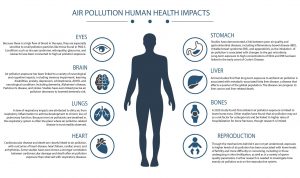Introduction:
Diabetes management is a crucial aspect of maintaining good health and preventing complications associated with this chronic condition. Beyond medications, adopting a holistic approach that includes a healthy diet, regular physical activity, and lifestyle modifications plays a pivotal role in achieving optimal well-being for individuals living with diabetes. In this article, we will explore various elements of diabetes management, emphasizing the significance of a balanced diet, lifestyle choices, and dietary guidelines.
- The Foundation of Diabetes Management: Healthy Diet
A healthy diet forms the cornerstone of diabetes management. It not only helps in managing blood sugar levels but also contributes to overall well-being. Embracing a balanced diet involves making informed choices about the types and quantities of foods consumed.
1.1 Whole Grains and Diabetes
Whole grains are a key component of a diabetes-friendly diet. Foods like brown rice, quinoa, and whole wheat bread contain fiber, which aids in stabilizing blood sugar levels. The World Health Organization (WHO) recommends incorporating whole grains into daily meals to promote better health and prevent chronic diseases.
1.2 Weight Loss and Blood Pressure Control
Maintaining a healthy weight is crucial for individuals with diabetes. Weight loss, when necessary, can lead to improved insulin sensitivity and better blood sugar control. Additionally, controlling blood pressure is essential, as individuals with diabetes are at a higher risk of heart disease. Adopting the Dietary Approaches to Stop Hypertension (DASH) diet is a recommended strategy, focusing on reducing sodium intake and emphasizing nutrient-rich foods.
1.3 Mediterranean Diet for Heart Health
The Mediterranean diet is renowned for its heart-healthy benefits, making it an excellent choice for individuals with diabetes. Rich in fruits, vegetables, whole grains, and healthy fats from sources like olive oil, this diet supports cardiovascular health. Incorporating the Mediterranean diet can contribute to better glycemic control and reduce the risk of heart disease.
- Dietary Patterns and Diabetes Prevention
Adopting specific dietary patterns can significantly impact diabetes management and prevention. Understanding the role of different food groups and following dietary guidelines is essential for creating a well-rounded approach to nutrition.
2.1 Food Groups and Dietary Guidelines
A varied diet that includes a balance of fruits, vegetables, lean proteins, whole grains, and dairy products is essential. Following dietary guidelines, such as those recommended by health organizations, can help individuals with diabetes make informed choices about portion sizes and nutrient intake. The Healthy Eating Plate, endorsed by experts, provides a visual representation of a balanced and nutritious meal.
2.2 Plant-Based Foods and Health Benefits
Incorporating more plant-based foods into the diet can have numerous health benefits for individuals with diabetes. Fresh fruits, vegetables, legumes, and nuts are rich in fiber, vitamins, and minerals, supporting overall well-being and aiding in blood sugar management. The consumption of plant-based foods is associated with a reduced risk of cardiovascular disease, making it a valuable addition to a diabetes management plan.
- Fats and Diabetes: A Sophisticated Approach
Understanding the role of fats in diabetes management is essential for making informed dietary choices. While fats are an integral part of a balanced diet, distinguishing between healthy and unhealthy fats is crucial for maintaining optimal health.
3.1 Unsaturated Fats and Heart Health
Incorporating unsaturated fats, such as those found in olive oil, avocados, and nuts, can have positive effects on heart health. These fats help lower bad cholesterol levels and reduce the risk of cardiovascular disease, which is particularly important for individuals with diabetes who are at an increased risk of heart-related complications.
3.2 Red Meat, Trans Fats, and Saturated Fat Awareness
Limiting the consumption of red meat, trans fats, and saturated fats is advisable for individuals with diabetes. Processed meats and foods high in saturated fats can contribute to inflammation and insulin resistance, potentially exacerbating diabetes-related complications. Opting for lean protein sources and healthier cooking methods can make a significant difference in managing blood sugar levels and promoting overall health.
- Lifestyle Modifications for Lasting Change
In addition to dietary considerations, adopting a healthy lifestyle is vital for individuals with diabetes. A combination of regular physical activity and behavior change strategies can contribute to long-term results in diabetes management.
4.1 Physical Activity and Diabetes
Engaging in regular physical activity is crucial for managing diabetes and promoting overall well-being. Exercise helps improve insulin sensitivity, lower blood sugar levels, and control weight. Both aerobic exercises, like walking or cycling, and strength training activities contribute to a well-rounded fitness routine. The World Health Organization recommends at least 150 minutes of moderate-intensity aerobic activity per week for adults.
4.2 Behavior Change for a Wellness Journey
Achieving lasting change in lifestyle habits requires a thoughtful and sustainable approach. Establishing realistic goals, cultivating a positive mindset, and seeking support from healthcare professionals or support groups can contribute to a successful wellness journey. Behavior change is a gradual process, and individuals with diabetes should focus on creating habits that align with their health goals.
- Exploring Different Dietary Approaches
Several dietary approaches have shown promise in managing diabetes and improving overall health. Understanding these approaches and tailoring them to individual preferences and needs can enhance the effectiveness of diabetes management.
5.1 Nordic Diet and Diabetes
The Nordic diet, rich in fish, whole grains, berries, and root vegetables, has gained attention for its potential benefits in diabetes management. This diet focuses on local, seasonal foods and emphasizes a balance of nutrients, making it a suitable choice for those looking to diversify their dietary options while managing diabetes.
5.2 Creating a Sustainable Plan for Long-Term Results
A sustainable and personalized approach to diabetes management involves considering individual preferences, cultural influences, and lifestyle factors. Creating a plan that is enjoyable and adaptable can lead to long-term success. Consulting with healthcare professionals, dietitians, and diabetes educators can help tailor a plan that aligns with individual needs and goals.
Conclusion:
Diabetes management is a multifaceted journey that goes beyond medications and involves embracing a holistic approach to health. By incorporating a healthy diet, engaging in regular physical activity, and making lifestyle modifications, individuals with diabetes can achieve optimal well-being and reduce the risk of complications. Recognizing the importance of dietary patterns, understanding the role of fats, and exploring different approaches contribute to a comprehensive and personalized diabetes management plan. With a commitment to lasting change and a focus on overall wellness, individuals can navigate the challenges of diabetes with resilience and achieve a healthier, more fulfilling life
Introduction:
Diabetes management is a crucial aspect of maintaining good health and preventing complications associated with this chronic condition. Beyond medications, adopting a holistic approach that includes a healthy diet, regular physical activity, and lifestyle modifications plays a pivotal role in achieving optimal well-being for individuals living with diabetes. In this article, we will explore various elements of diabetes management, emphasizing the significance of a balanced diet, lifestyle choices, and dietary guidelines.
- The Foundation of Diabetes Management: Healthy Diet
A healthy diet forms the cornerstone of diabetes management. It not only helps in managing blood sugar levels but also contributes to overall well-being. Embracing a balanced diet involves making informed choices about the types and quantities of foods consumed.
1.1 Whole Grains and Diabetes
Whole grains are a key component of a diabetes-friendly diet. Foods like brown rice, quinoa, and whole wheat bread contain fiber, which aids in stabilizing blood sugar levels. The World Health Organization (WHO) recommends incorporating whole grains into daily meals to promote better health and prevent chronic diseases.
1.2 Weight Loss and Blood Pressure Control
Maintaining a healthy weight is crucial for individuals with diabetes. Weight loss, when necessary, can lead to improved insulin sensitivity and better blood sugar control. Additionally, controlling blood pressure is essential, as individuals with diabetes are at a higher risk of heart disease. Adopting the Dietary Approaches to Stop Hypertension (DASH) diet is a recommended strategy, focusing on reducing sodium intake and emphasizing nutrient-rich foods.
1.3 Mediterranean Diet for Heart Health
The Mediterranean diet is renowned for its heart-healthy benefits, making it an excellent choice for individuals with diabetes. Rich in fruits, vegetables, whole grains, and healthy fats from sources like olive oil, this diet supports cardiovascular health. Incorporating the Mediterranean diet can contribute to better glycemic control and reduce the risk of heart disease.
- Dietary Patterns and Diabetes Prevention
Adopting specific dietary patterns can significantly impact diabetes management and prevention. Understanding the role of different food groups and following dietary guidelines is essential for creating a well-rounded approach to nutrition.
2.1 Food Groups and Dietary Guidelines
A varied diet that includes a balance of fruits, vegetables, lean proteins, whole grains, and dairy products is essential. Following dietary guidelines, such as those recommended by health organizations, can help individuals with diabetes make informed choices about portion sizes and nutrient intake. The Healthy Eating Plate, endorsed by experts, provides a visual representation of a balanced and nutritious meal.
2.2 Plant-Based Foods and Health Benefits
Incorporating more plant-based foods into the diet can have numerous health benefits for individuals with diabetes. Fresh fruits, vegetables, legumes, and nuts are rich in fiber, vitamins, and minerals, supporting overall well-being and aiding in blood sugar management. The consumption of plant-based foods is associated with a reduced risk of cardiovascular disease, making it a valuable addition to a diabetes management plan.
- Fats and Diabetes: A Sophisticated Approach
Understanding the role of fats in diabetes management is essential for making informed dietary choices. While fats are an integral part of a balanced diet, distinguishing between healthy and unhealthy fats is crucial for maintaining optimal health.
3.1 Unsaturated Fats and Heart Health
Incorporating unsaturated fats, such as those found in olive oil, avocados, and nuts, can have positive effects on heart health. These fats help lower bad cholesterol levels and reduce the risk of cardiovascular disease, which is particularly important for individuals with diabetes who are at an increased risk of heart-related complications.
3.2 Red Meat, Trans Fats, and Saturated Fat Awareness
Limiting the consumption of red meat, trans fats, and saturated fats is advisable for individuals with diabetes. Processed meats and foods high in saturated fats can contribute to inflammation and insulin resistance, potentially exacerbating diabetes-related complications. Opting for lean protein sources and healthier cooking methods can make a significant difference in managing blood sugar levels and promoting overall health.
- Lifestyle Modifications for Lasting Change
In addition to dietary considerations, adopting a healthy lifestyle is vital for individuals with diabetes. A combination of regular physical activity and behavior change strategies can contribute to long-term results in diabetes management.
4.1 Physical Activity and Diabetes
Engaging in regular physical activity is crucial for managing diabetes and promoting overall well-being. Exercise helps improve insulin sensitivity, lower blood sugar levels, and control weight. Both aerobic exercises, like walking or cycling, and strength training activities contribute to a well-rounded fitness routine. The World Health Organization recommends at least 150 minutes of moderate-intensity aerobic activity per week for adults.
4.2 Behavior Change for a Wellness Journey
Achieving lasting change in lifestyle habits requires a thoughtful and sustainable approach. Establishing realistic goals, cultivating a positive mindset, and seeking support from healthcare professionals or support groups can contribute to a successful wellness journey. Behavior change is a gradual process, and individuals with diabetes should focus on creating habits that align with their health goals.
- Exploring Different Dietary Approaches
Several dietary approaches have shown promise in managing diabetes and improving overall health. Understanding these approaches and tailoring them to individual preferences and needs can enhance the effectiveness of diabetes management.
5.1 Nordic Diet and Diabetes
The Nordic diet, rich in fish, whole grains, berries, and root vegetables, has gained attention for its potential benefits in diabetes management. This diet focuses on local, seasonal foods and emphasizes a balance of nutrients, making it a suitable choice for those looking to diversify their dietary options while managing diabetes.
5.2 Creating a Sustainable Plan for Long-Term Results
A sustainable and personalized approach to diabetes management involves considering individual preferences, cultural influences, and lifestyle factors. Creating a plan that is enjoyable and adaptable can lead to long-term success. Consulting with healthcare professionals, dietitians, and diabetes educators can help tailor a plan that aligns with individual needs and goals.
Conclusion:
Diabetes management is a multifaceted journey that goes beyond medications and involves embracing a holistic approach to health. By incorporating a healthy diet, engaging in regular physical activity, and making lifestyle modifications, individuals with diabetes can achieve optimal well-being and reduce the risk of complications. Recognizing the importance of dietary patterns, understanding the role of fats, and exploring different approaches contribute to a comprehensive and personalized diabetes management plan. With a commitment to lasting change and a focus on overall wellness, individuals can navigate the challenges of diabetes with resilience and achieve a healthier, more fulfilling life






















+ There are no comments
Add yours